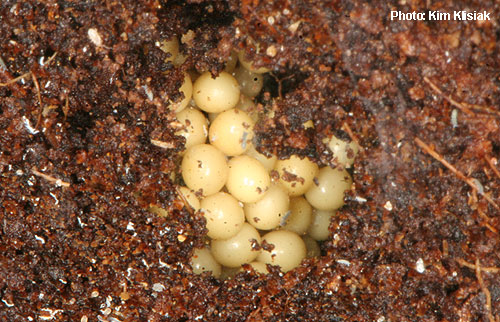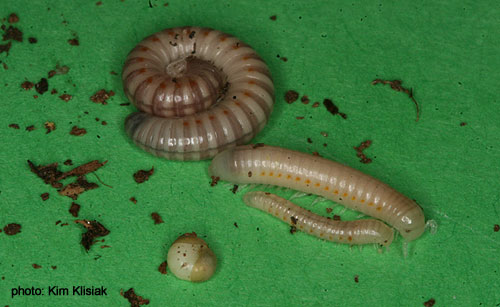If you see one baby, odds are there are many more. The babies stay buried until they reach a certain size. If you put a piece of apple with something on top (piece of cork, plastic, water bowl, ect) and check back in a day or two you might see some of the babies on the apple. I do not recommend digging for them as you could easily crush them while they are young and soft.
But I'll also tell you one of my sad stories, I had eggs, but a major lack of babies. I couldn't figure out what was wrong, so I moved every millipede and the few babies I could find into a new tank. I left the old tank sitting as is for months b/c I didn't want to risk tossing any good eggs or babies.
When I finally cleaned the tank out, I carefully went thru all the dirt and I found the head section of a large beetle. So I assume the beetle larva was having a grand 'ol time snacking on my baby millipedes. so so sad
Giant African Black Eggs laid against the glass

But I'll also tell you one of my sad stories, I had eggs, but a major lack of babies. I couldn't figure out what was wrong, so I moved every millipede and the few babies I could find into a new tank. I left the old tank sitting as is for months b/c I didn't want to risk tossing any good eggs or babies.
When I finally cleaned the tank out, I carefully went thru all the dirt and I found the head section of a large beetle. So I assume the beetle larva was having a grand 'ol time snacking on my baby millipedes. so so sad
Giant African Black Eggs laid against the glass


